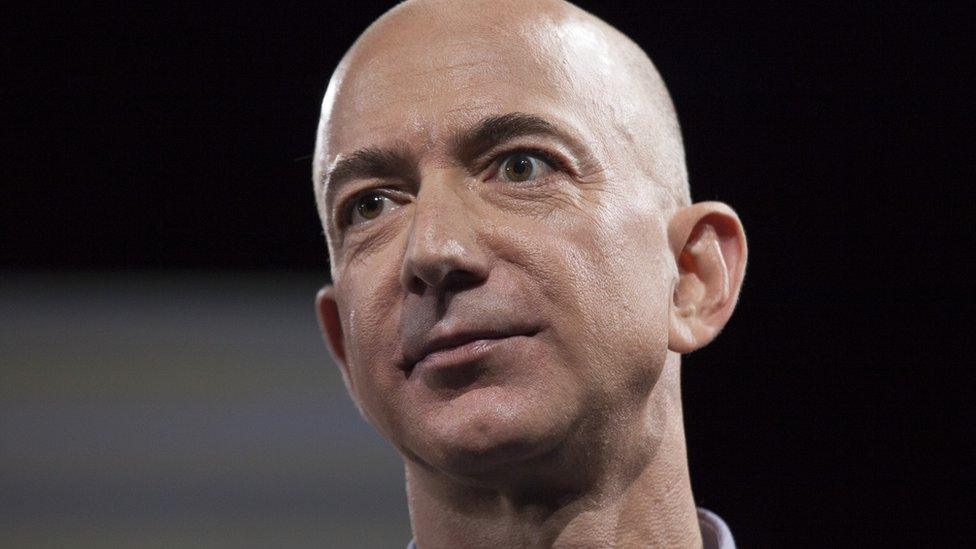Why I hate meetings - and how to make them better
- Published

The pointless business meeting - we've all been there, says Stephanie
Every time economists wonder why Britain's productivity is so low, it takes all my strength to resist spitting out one loathsome word - "meetings", says workplace commentator Stephanie Hare.
Conference calls and video conferencing are the worst. You can write off the first several minutes because you and your colleagues will be troubleshooting technical issues, checking that everyone can see what's being shared on the screen, and struggling to mute or unmute yourselves.
And just as everyone finally gets stuck into some content, someone will inevitably crash in, apologise for being late, and the whole thing starts over. In my experience, I've found that it's best to mute yourself before you start screaming.
Often there's no pre-meeting agenda, so it's entirely possible to attend a meeting without knowing what you're supposed to contribute or get out of it.
Nor is it always apparent why some of us are in the meeting. We may be wasting our time spectating, when we could be getting on with something more valuable - like working.

Elon Musk: Walk out of a meeting if it's a waste of your time
And if no-one agrees any "action points" at the end, you can leave a meeting wondering what just happened during that hour of your life that you'll never get back.
No wonder Elon Musk, the CEO of Tesla and SpaceX, recently urged colleagues to walk out of meetings as soon as it becomes obvious that they are not adding value. "It's not rude to leave," he explains. "It's rude to make someone stay and waste their time."
Amazon's Jeff Bezos is so wary of bad meetings, he's devised an entire mitigation strategy.
He avoids meetings before 10am, as he's figured out that he's not productive before then
He keeps meetings small - with attendance limited to the number of people that can be fed by two pizzas
And he's banned Powerpoint
Instead, he demands that his executives write a six-page "narratively constructed" memo. "It has real sentences and verbs and nouns," he confides. "It's not just bullet points."

Jeff Bezos: Keep things small, not before 10am - and read the meeting's memos
Now you Powerpoint junkies out there are no doubt gasping in disbelief.
I can only imagine how apoplectic you'll be when you hear this: no-one talks anyone through a deck in a Bezos meeting. Instead, the first 30 minutes are spent in silence, reading the memo, because Bezos knows that executives can behave like teenagers: showing up to meetings without doing any preparation.
Are some of you blushing? You know who you are!
Yet even if you've sent out your agenda to your perfectly sized group and agree action points at the end, you can still run a bad meeting by failing to ensure that all voices are heard.
This is more than just bad manners - it's bad management.
Our more introverted colleagues may not have the appetite, or frankly, the energy, to elbow their way into a conversation dominated by those who are more expressive.
And research shows consistently that women are often ignored and interrupted by men in meetings.

Include everybody, don't let the motor-mouths dominate your meetings, says Stephanie Hare
So to run a better meeting, here's a few action points for us all to consider.
For instance, research shows that when a woman asks the first question or offers the first comment in a meeting, other women are likely to speak, too. So ladies, when you're offered the space - take it.
Second, create space for quieter colleagues by asking them beforehand how they would like to be heard. After years of being talked over in meetings, I can promise you that they have many ideas.
Third, we all need to hold ourselves accountable. If we truly think a meeting is a good use of our time, let's check with our colleagues.
Finally, let's not take it personally if one of our colleagues pulls an Elon Musk and leaves our meeting. It doesn't necessarily mean we're boring - just that they've added what value they can.
For more workplace letters from Stephanie Hare and other contributors, download the World Business Report podcast.
- Published16 October 2018

- Published23 August 2018
